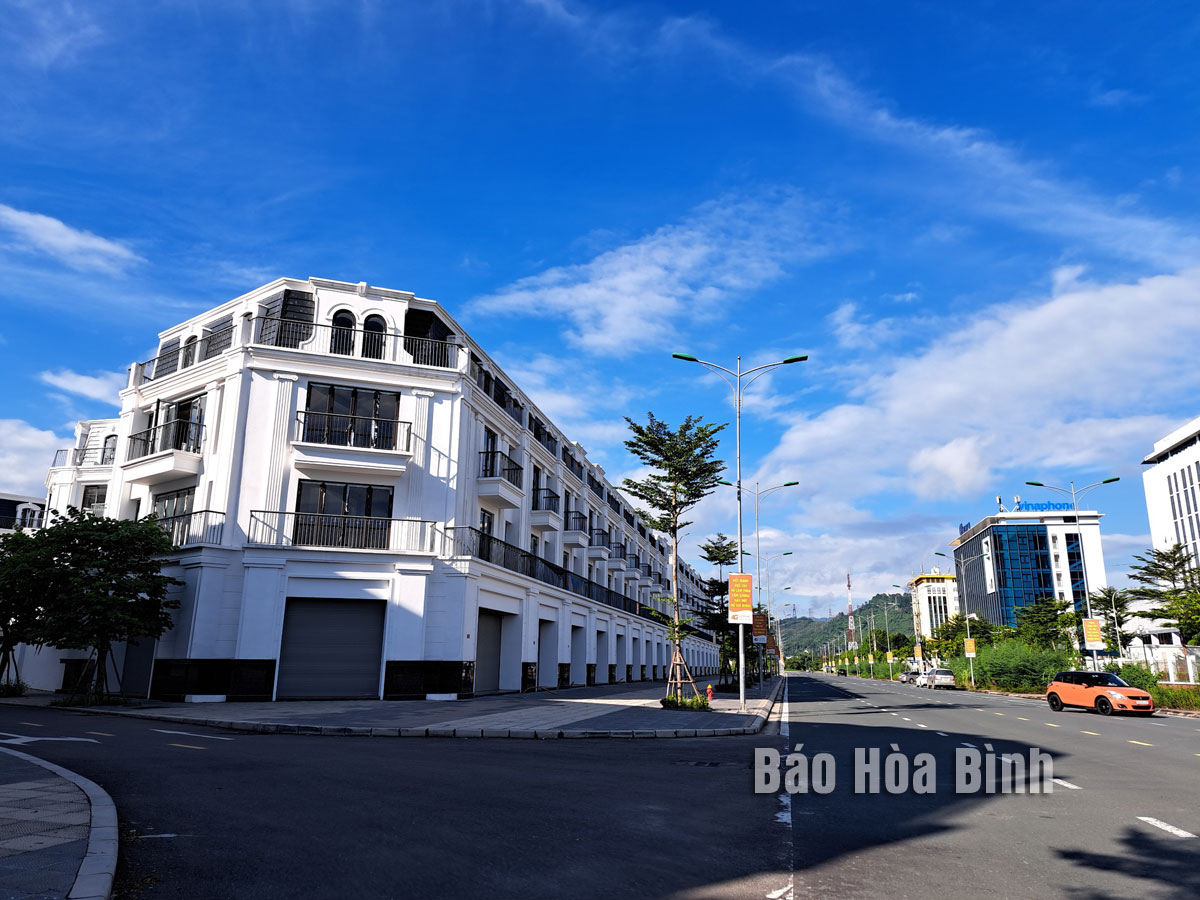
(HBO) – Hoa Binh province aims to reach a urbanisation rate of 38% by 2025 and 43.18% by 2030. The provincial People's Committee has issued Plan No. 180-KH/UBND, dated September 18, 2023 on implementing an urban development programme to 2025, with a vision to 2030.

Hoa Binh city is focusing resources to achieve the criteria of a class-II
city by 2025.
Accordingly, the implementation of the plan is considered a basis for
reviewing, proposing adjustments or building new master plans, zoning plans,
detailed plans and specialised plans in the province in a timely manner in
accordance with current regulations, thus serving the construction and
investment management, attracting investment projects of urban development and
technical infrastructure in the locality.
The urban planning and urban development programmes must align with the
provincial urban development programme and be suitable for the local context.
Absolutely, the implementation roadmap will be determined in a rational manner.
In the short term, key infrastructure and transportation projects that connect
urban areas will be prioritised.
Attention will be paid to developing technical and social infrastructure
systems based on the principle of comprehensive investment. This involves a
combination of new investment, upgrading, and maintenance to ensure the
effective use of existing infrastructure facilities.
The provincial People's Committee has set out tasks for each urban area, as
well as the implementation of groups of solutions proposed in the urban development
programme of the locality, focusing on solutions on capital, investment
attraction and policy, urban development in adaptation to climate change and
natural disasters, among others.
The Standing Board of the Hoa Binh provincial Party Committee has agreed in principle on a proposal by the Standing Board of the Party Committee of Hoa Binh city to gather feedback on the city’s 1:2000 zoning plan, which forms part of its broader urban development strategy.
Hoa Binh province has made notable progress in public administration reform and digital government development, with the satisfaction index among citizens and businesses reaching over 84%, according to recent government evaluations.
Thanks to great efforts by local authorities in recent times, the governance and public administration performance of Mai Chau district has been significantly improved.
In the afternoon of June 6, the Party Committee, the People's Council, the People's Committee and the Fatherland Front of Lac Son district solemnly held a meeting to celebrate the 139th anniversary of the district's founding (1886–2025) and the 79th anniversary of the establishment of the district's Party Committee (1946–2025). There was the attendance of Mr. Bui Van Thang, the Vice Chairman of the Provincial People's Council; Mr. Quach Tat Liem, the Vice Chairman of the Provincial People's Committee; Ms. Dang Bich Ngoc, the Deputy Head of the National Assembly Delegation of the province; as well as the former leaders of the province and district through various periods, who are the natives of the district.
Implementing the Politburo’s Resolution No. 57-NQ/TW on breakthroughs in science – technology, innovation, and digital transformation is a golden opportunity for the northern mountainous province of Hoa Binh to renew growth model, improve competitive edge and shorten digital gap.
Resolution 57-NQ/TW, issued by the Politburo on December 22, 2024, identifies sci-tech, innovation, and digital transformation as strategic breakthroughs to build a developed and prosperous nation. In Hoa Binh province, this spirit is not just a slogan, it’s being put into action through concrete initiatives that form a "new development triangle”: digital citizenship, digital economy, and digital administration.



